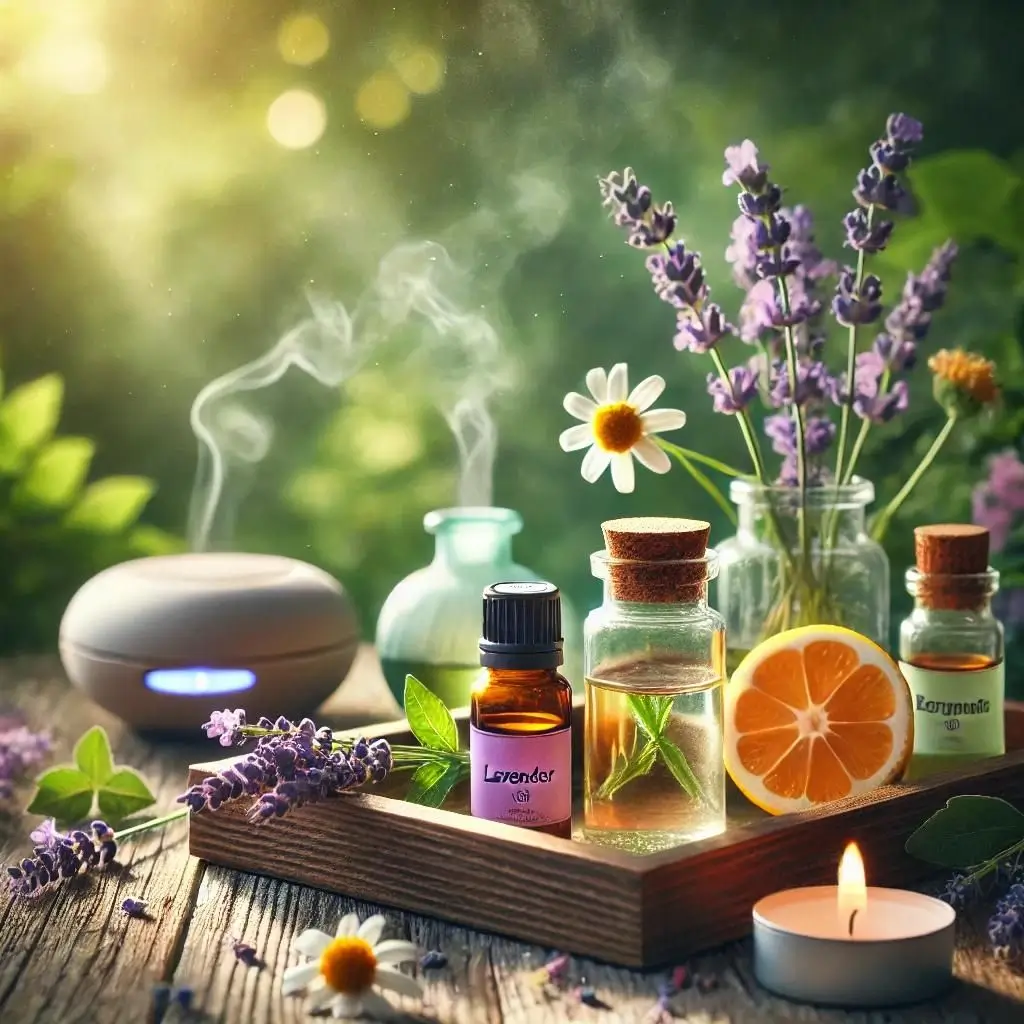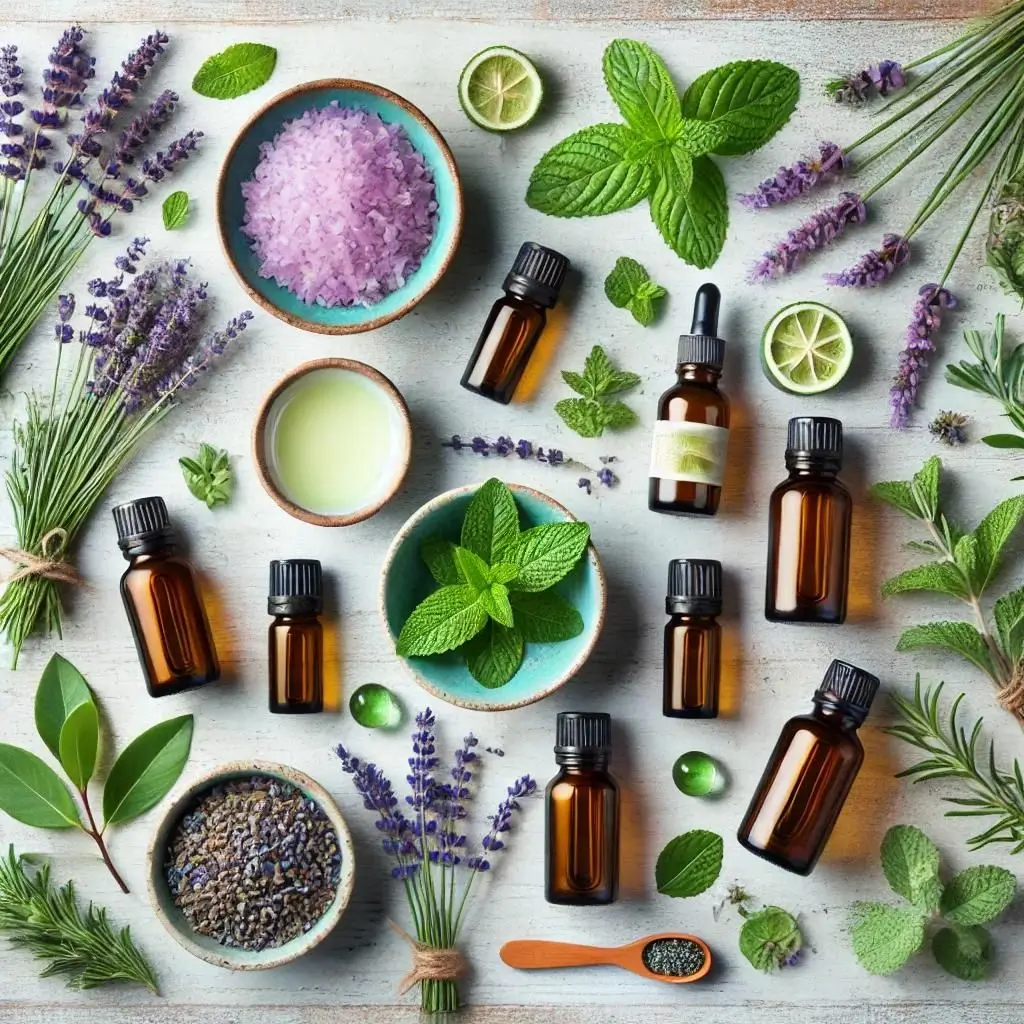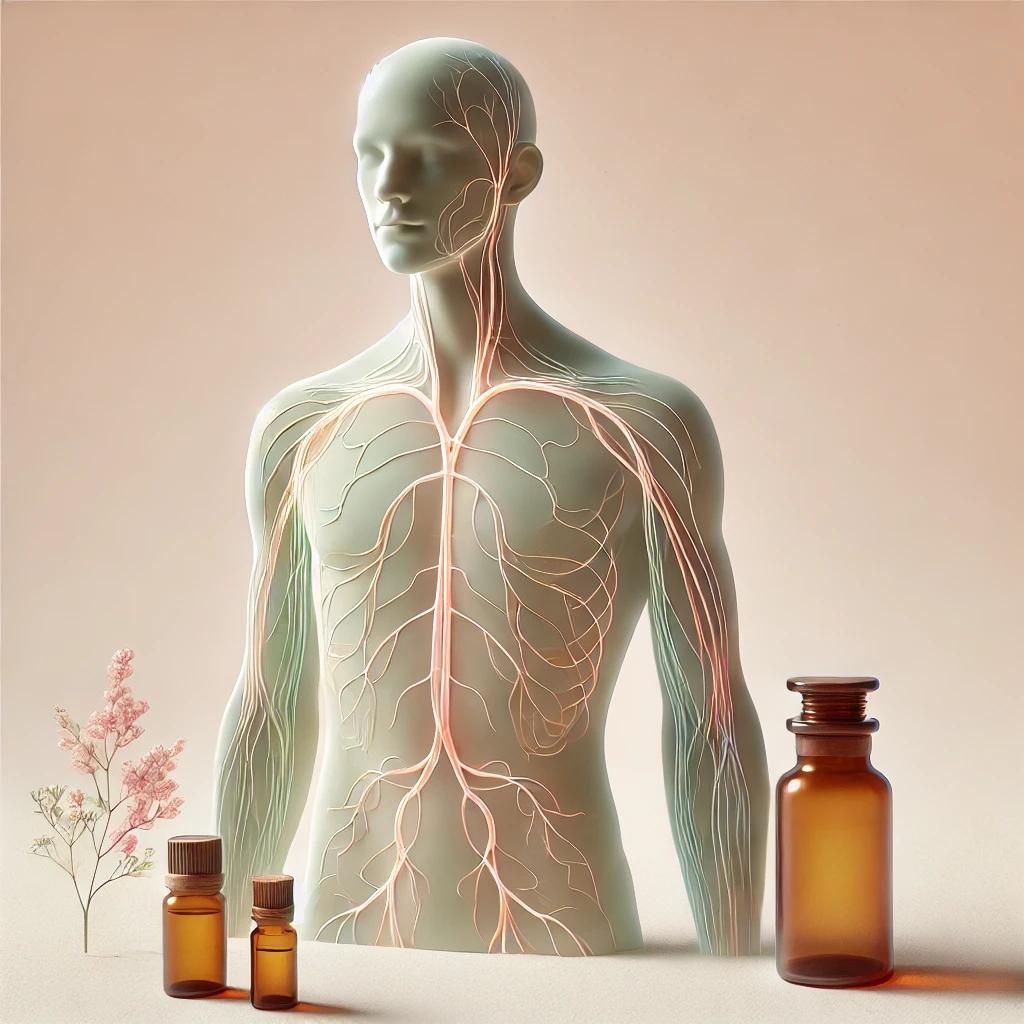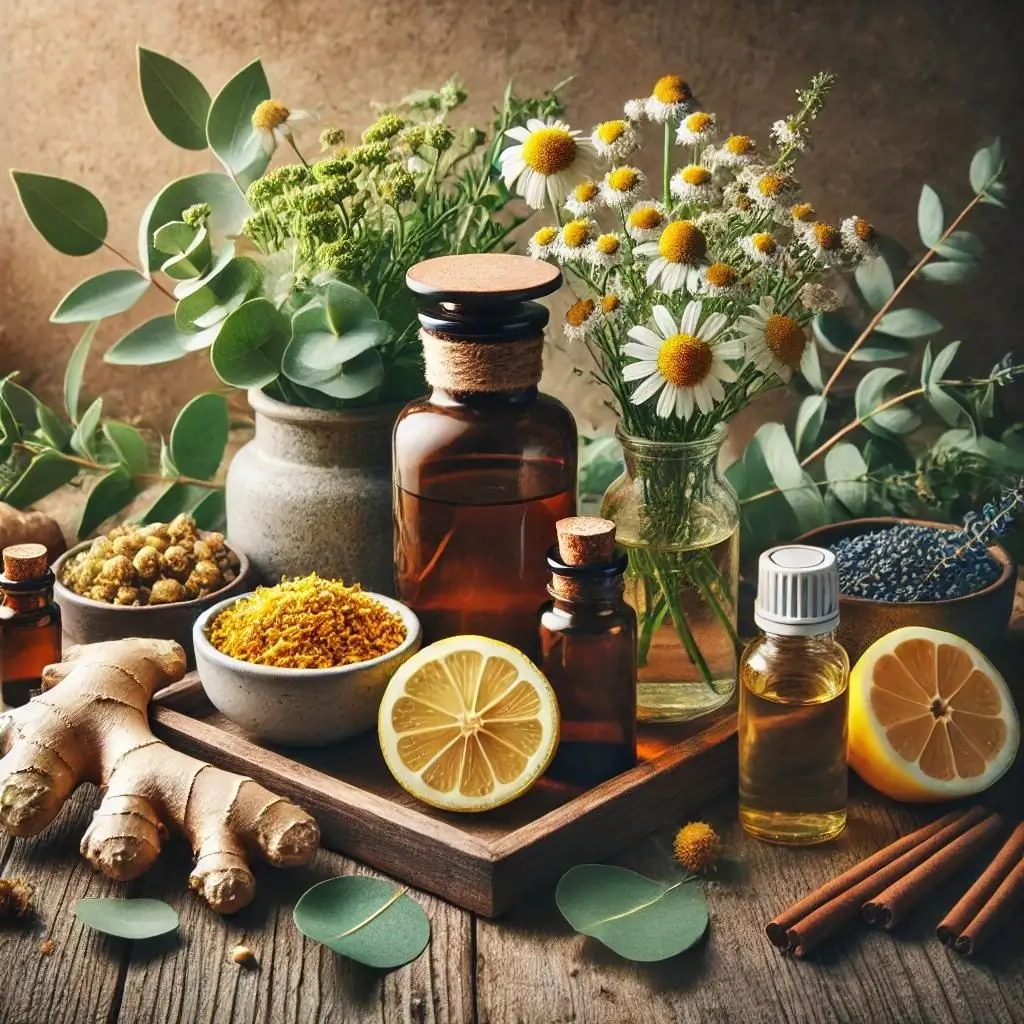Anxiety and panic attacks can be overwhelming, but essential oils offer a natural way to manage these symptoms. Essential oils, derived from plants, have calming and therapeutic properties that can promote relaxation and reduce anxiety. Creating blends of these oils can enhance their effects, offering a holistic approach to emotional well-being. In this guide, we’ll explore the best essential oil blends for anxiety and panic attacks, how to use them, and important safety tips.
What are the best essential oils for anxiety and panic attacks?
Many essential oils are known for their calming and anxiety-reducing properties. Some of the most effective include:
- Lavender: Known for its relaxing and sedative effects, lavender is a top choice for reducing anxiety and promoting sleep.
- Bergamot: This citrus oil can uplift the mood and alleviate stress.
- Chamomile: Offers calming effects that help reduce anxiety and promote relaxation.
- Ylang Ylang: Known for its ability to calm the mind and reduce feelings of panic.
- Frankincense: Helps deepen breathing and promote a sense of peace and grounding.
Here’s a table summarizing the benefits of these oils:
| Essential Oil | Benefits |
|---|---|
| Lavender | Reduces anxiety, promotes sleep |
| Bergamot | Uplifts mood, alleviates stress |
| Chamomile | Calms mind, reduces anxiety |
| Ylang Ylang | Calms mind, reduces feelings of panic |
| Frankincense | Deepens breathing, promotes peace |
How do you make an essential oil blend for anxiety?
Creating an essential oil blend for anxiety involves selecting oils that complement each other. Here’s a simple recipe to get you started:
- Select your oils: Choose 3-4 oils known for their calming properties.
- Blend the oils: Mix the following in a dark glass bottle:
- 10 drops Lavender
- 5 drops Bergamot
- 5 drops Chamomile
- 5 drops Frankincense
- Dilute the blend: Add a carrier oil, such as jojoba or almond oil, to dilute the essential oils. Use about 2 tablespoons of carrier oil.
This blend can be used in a diffuser, applied to the skin (always do a patch test first), or added to a bath.
Can essential oils help during a panic attack?
Yes, essential oils can help during a panic attack. Their calming properties can aid in grounding and calming the mind. Here’s how you can use them effectively:
- Inhalation: Place a few drops of your anxiety blend on a tissue and inhale deeply.
- Diffusion: Use an essential oil diffuser to fill the room with calming scents.
- Topical application: Apply diluted essential oils to pulse points such as wrists, temples, and neck.
Using essential oils in these ways can help slow down breathing and create a calming environment, making it easier to manage a panic attack.
What are some popular essential oil blend recipes for anxiety?
Here are a few popular essential oil blend recipes that you can try for anxiety relief:
- Calming Blend:
- 10 drops Lavender
- 5 drops Bergamot
- 5 drops Ylang Ylang
- Stress Relief Blend:
- 8 drops Chamomile
- 7 drops Frankincense
- 5 drops Clary Sage
- Uplifting Blend:
- 6 drops Orange
- 6 drops Lemongrass
- 8 drops Lavender
- Relaxation Blend:
- 7 drops Cedarwood
- 6 drops Marjoram
- 7 drops Roman Chamomile
These blends can be customized to suit your preferences. Adjust the ratios or add other oils that you find soothing.
How should you use essential oil blends for anxiety relief?
There are several effective ways to use essential oil blends for anxiety relief:
- Diffusion: Use an essential oil diffuser to disperse the blend into the air.
- Inhalation: Add a few drops to a tissue or cotton ball and inhale deeply.
- Topical Application: Dilute the blend with a carrier oil and apply to pulse points.
- Bath: Add a few drops of the blend to a warm bath for a relaxing soak.
- Massage: Use the diluted blend for a calming massage.
Choose the method that best fits your lifestyle and preferences for optimal results.
Are there any safety tips for using essential oils for anxiety and panic attacks?
When using essential oils, it’s important to follow safety guidelines:
- Dilution: Always dilute essential oils with a carrier oil before applying to the skin.
- Patch Test: Perform a patch test to check for allergic reactions.
- Quality: Use high-quality, pure essential oils from reputable sources.
- Storage: Store oils in a cool, dark place to maintain their efficacy.
- Consultation: Consult with a healthcare provider, especially if pregnant, nursing, or taking medications.
Following these tips ensures safe and effective use of essential oils for anxiety relief.
What are the benefits of using essential oils for mental health?
Essential oils offer various benefits for mental health:
- Reduces Anxiety: Calms the mind and reduces anxiety symptoms.
- Improves Mood: Uplifts mood and promotes a positive outlook.
- Enhances Relaxation: Promotes relaxation and reduces stress.
- Supports Sleep: Improves sleep quality and duration.
- Increases Focus: Helps improve concentration and mental clarity.
Using essential oils as part of your mental health routine can provide a natural and holistic approach to well-being.
Can children use essential oils for anxiety?
Yes, children can use essential oils for anxiety, but with caution:
- Dilution: Use a higher dilution ratio for children (1-2%).
- Age-Appropriate Oils: Choose oils safe for children, such as lavender and chamomile.
- Supervision: Always supervise children when using essential oils.
- Patch Test: Perform a patch test before full application.
Consult with a pediatrician to ensure safe use of essential oils for children.
How do you store essential oils properly?
Proper storage of essential oils ensures their longevity and effectiveness:
- Dark Glass Bottles: Store oils in dark glass bottles to protect from light.
- Cool, Dark Place: Keep oils in a cool, dark place away from heat and sunlight.
- Tightly Sealed: Ensure bottles are tightly sealed to prevent oxidation.
- Labeling: Label bottles with the date of purchase to track freshness.
Following these storage tips helps maintain the quality and potency of your essential oils.
Can essential oils interact with medications for anxiety?
Yes, essential oils can interact with medications. Here are some considerations:
- Consultation: Always consult with a healthcare provider before using essential oils if you’re on medication.
- Research: Research potential interactions between your medication and specific essential oils.
- Monitoring: Monitor for any adverse reactions when using essential oils alongside medication.
Ensuring safe use involves understanding potential interactions and consulting with professionals.
Conclusion
Essential oil blends offer a natural and effective way to manage anxiety and panic attacks. By selecting the right oils and using them safely, you can create a calming environment and promote emotional well-being. Remember to consult with healthcare professionals when necessary and enjoy the holistic benefits that essential oils bring to your life.




